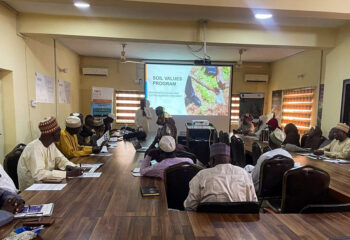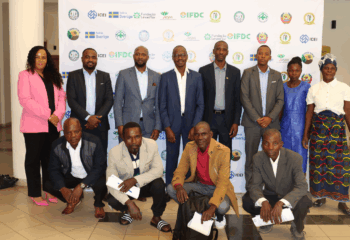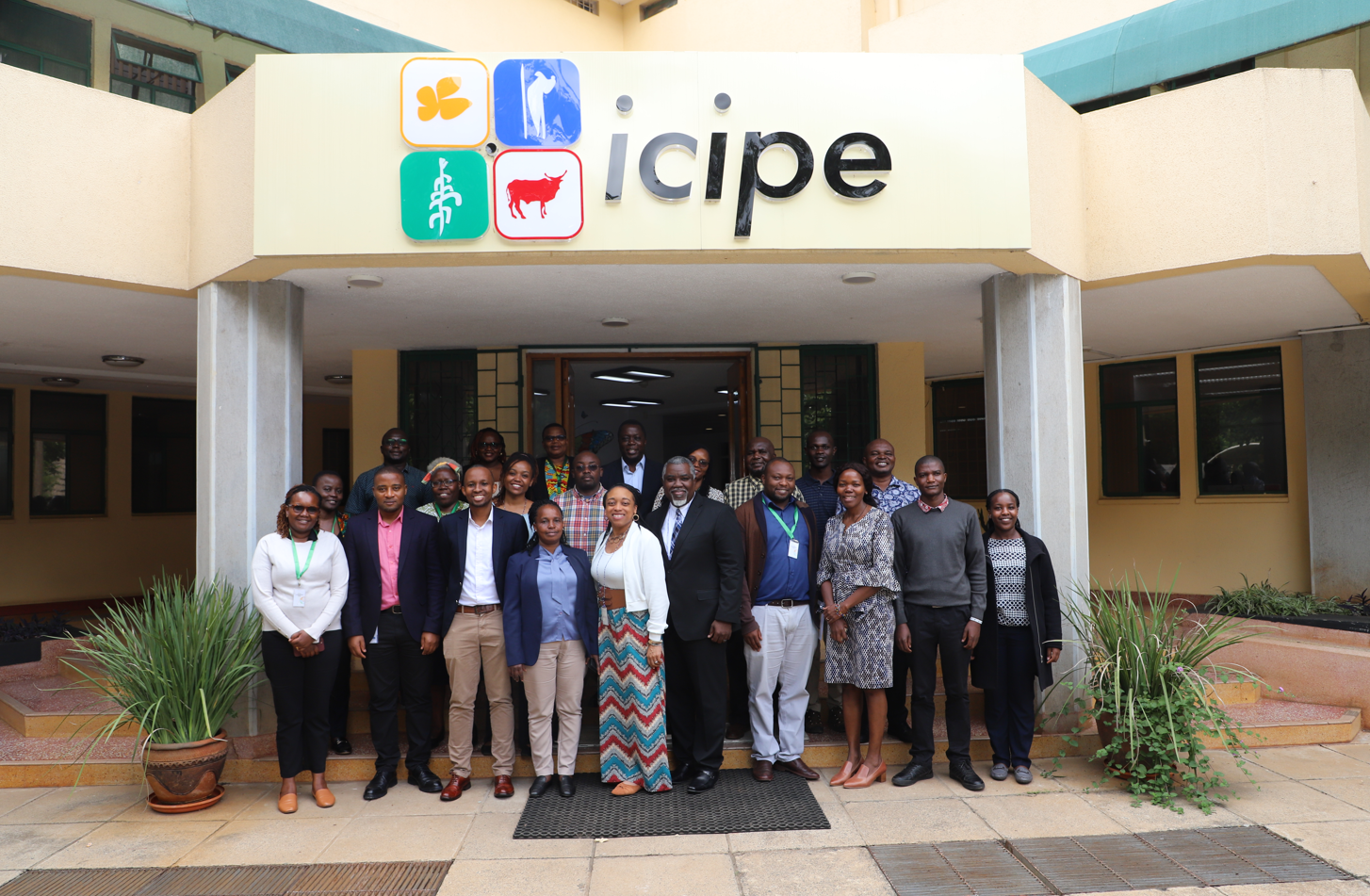Contact: Courtney Greene (256-381-6600, cgreene@ifdc.org, @IFDCNews)
June 13, 2014 – Nairobi, Kenya – Today, the International Fertilizer Development Center (IFDC) and the Kenyan government signed an accreditation agreement formalizing their shared commitment to sustainable agricultural development in the country. The agreement establishes Kenya as a “host” country to IFDC. IFDC’s priorities are those of Kenya – ensuring that fertilizer, training and agricultural technologies reach the farmers that need them the most.
“Agriculture is the engine that drives Kenya’s economy,” said Dr. Amit Roy, IFDC president and CEO. “Our valued partnership with the Kenyan government will keep that locomotive roaring.”
IFDC’s collaboration with the Kenya Ministry of Agriculture began in the early 1990s with joint projects to privatize fertilizer markets and training programs on agro-input market development. The portfolio soon expanded to address soil and crop management, output markets and agribusiness development. In 2009, Nairobi became IFDC’s regional headquarters for its East and Southern Africa Division.
“Sixty percent of Kenyans rely on agriculture for their livelihoods,” said Ambassador Amina Mohamed, Cabinet Secretary of the Kenyan Ministry of Foreign Affairs and International Trade, in an address during the signing ceremony. “Our alliance with IFDC will continue to accelerate agricultural development and create lasting benefits for smallholder farmers across the country and throughout the region.”
IFDC efforts in Kenya currently center on working with the Ministry of Agriculture to better target fertilizer subsidies, strengthen agro-input policies, support agribusiness development and build capacity among farmer organizations.
(For more information, see the following statement by Dr. Amit Roy.)
###
IFDC.org
@IFDCNews
IFDC is a public international organization addressing critical issues such as international food security, the alleviation of global hunger and poverty, environmental protection and the promotion of economic development and self-sufficiency through the use of agricultural technologies including fertilizers and other inputs.
Statement for Signing Ceremony
Kenya Host Country Agreement
Amit Roy
IFDC President and CEO
Today marks an important milestone in IFDC’s relationship with the Kenyan government. We share a commitment to improve the nation’s agriculture sector and, thus, the livelihoods of smallholder farmers across the country. Now, with the signing of this agreement, we celebrate and solidify that commitment.
We have been honored to partner with the Kenya Ministry of Agriculture since the early 1990s. In 2009, Nairobi became the regional headquarters for our East and Southern Africa Division. Thirty-five IFDC staff members call Kenya their home.
The priorities of the Kenyan government are the priorities of IFDC. Our joint projects have helped strengthen private sector-led fertilizer markets. Together, we continue to ensure that fertilizer, training and agricultural technologies reach the farmers that need them the most.
Under Kenya’s long-term national planning strategy, Vision 2030, the government calls for “an innovative, commercially oriented and modern agriculture sector.” We have witnessed the impact of effective agricultural policies, public-private partnerships and new fertilizer technologies throughout Africa. All have reversed decades of declining per capita food production on the continent. In fact, GDP in sub-Saharan Africa has grown by 5-6 percent a year, signaling that agricultural development is economic development.
Unquestionably, Kenya’s leaders are dedicated to achieving food security in the country. To do this, we must promote the use of fertilizers, improved seeds and other inputs. For example, rice farmers in 17 African countries, including Kenya, are using fertilizer deep placement technology to increase yields and incomes by 20 percent while using 30 percent less fertilizer. We’re also working with the Ministry of Agriculture to transition from “blanket” fertilizer recommendations to site-specific fertilizer blends that address soil nutrient deficiencies in a particular area.
Public-private partnerships are accelerating agro-input market development and linking farmers to viable food markets. Nearly 60 private companies and over 9,000 farmers in Kenya are involved in our 2SCALE project. We act as a bridge between buyers and sellers, enabling farmers to move from subsistence to market-oriented agriculture.
Farmers’ primary points of contact for fertilizers and technical farming advice are agro-dealers. Our projects in Kenya have trained nearly 500 agro-dealers. More than 4,000 agro-dealers in Kenya, and thousands more across the region, are using our AMITSA market information system to receive and share data on agro-inputs. We’re also mapping the information needs of 23 farmer groups – over 9,000 farmers – across the country. This is the first step toward a comprehensive database that will help connect farmers with agribusiness opportunities.
In addition to working with the Ministry and its agencies, we are also partnering with farmer groups, agri-entrepreneurs, non-governmental organizations, universities, seed and fertilizer companies, food processors, banks and micro-finance providers.
Agriculture is the engine that drives Kenya’s economy. We look forward to further complementing Kenya’s initiatives to prioritize agricultural development and food and nutrition security in the country.
Today, we are not simply signing a paper, we are fortifying a bond that will improve livelihoods for millions of farmers throughout the region.



